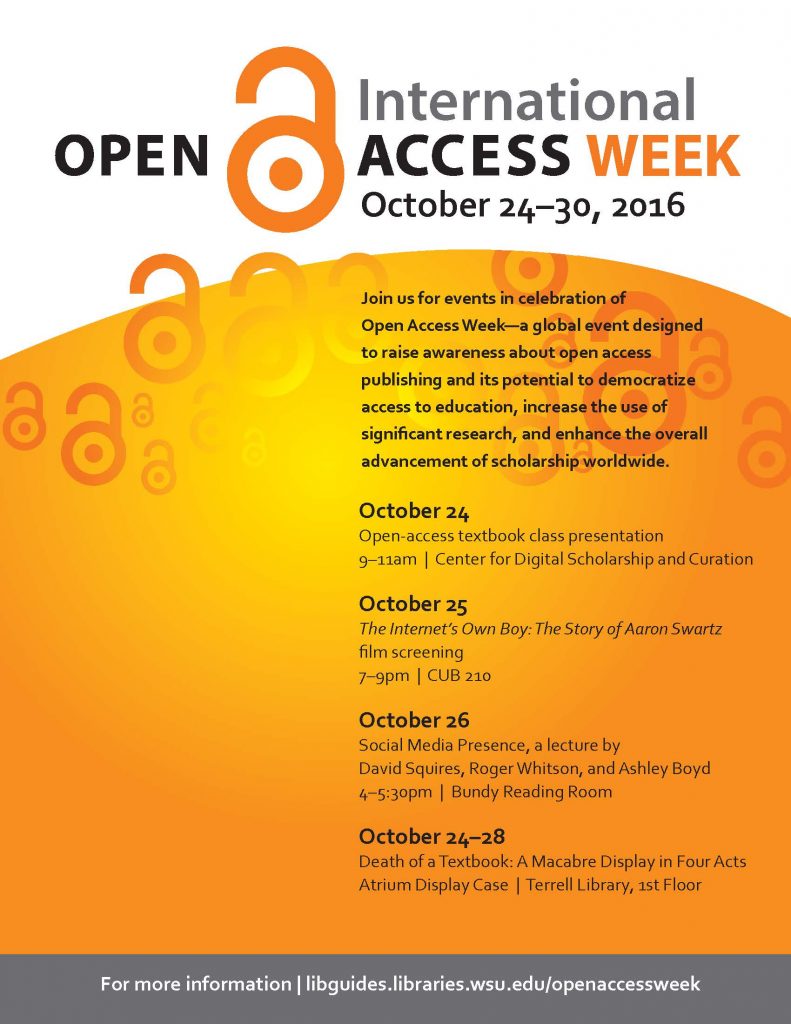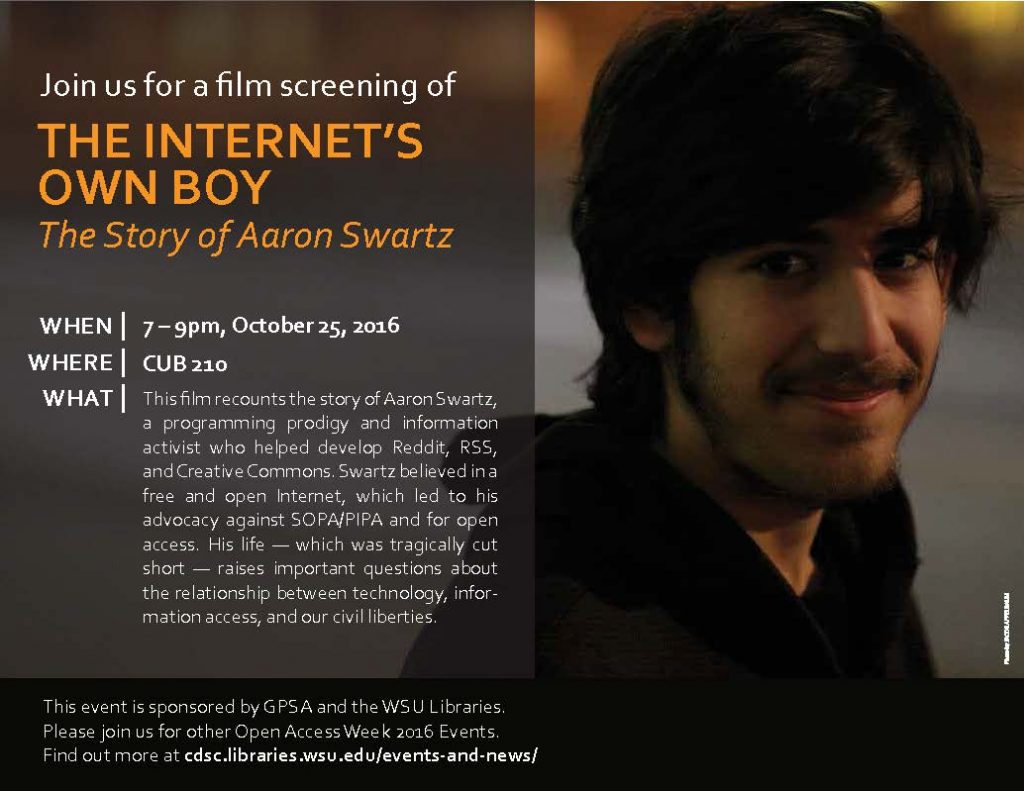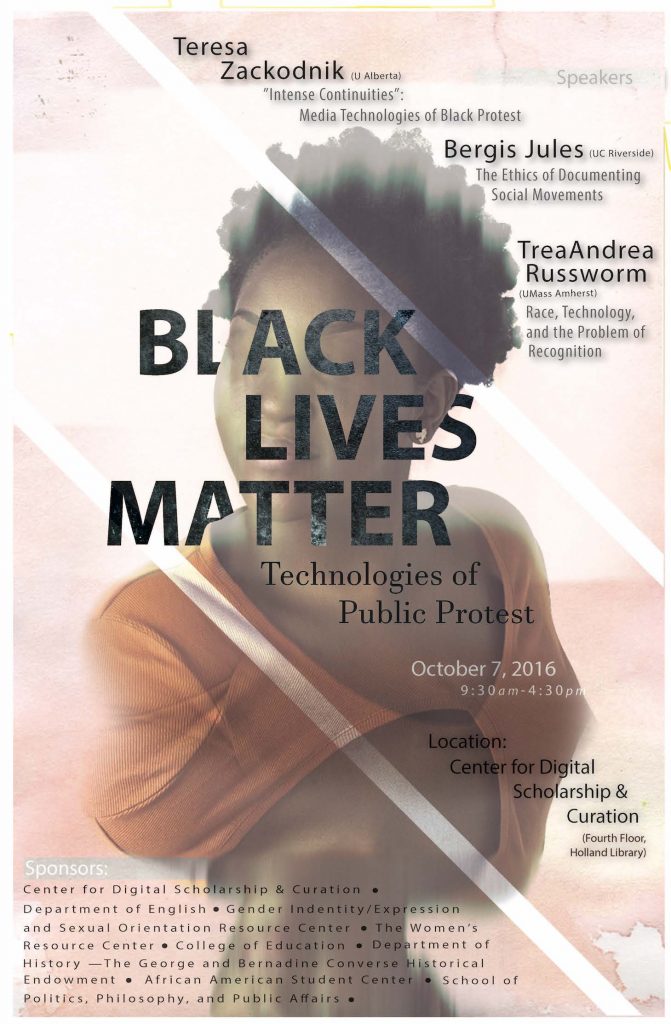Open Access Textbook Presentation
Michael WynneThe cost of college textbooks has risen 1,041% since 1977, according to a recent NBC study of federal data. That substantial figure confirms what most college students already know—course supply costs are a burden. The Open Education Resource movement offers one solution to the growing costs of educational resources by making it possible to license materials for free use. Open access textbooks play an important role in the movement toward sharing knowledge because they can replace expensive textbooks published for profit. Open access textbooks also have the benefit of promoting emergent subjects of study without worrying about course adoption rates.
These presentations will participate in the Open Education movement by featuring prototype textbooks on social media. Because no standard textbooks exist on the subject of social media, this project by Digital Technology & Culture (DTC) students lays the groundwork for further development in education focused on digital literacy, Internet privacy, e-security, creativity, and effective communication.
Students will model an online textbook using the free, open-source publishing platform Scalar and present their work on October 24th in two rounds, at 9am and 10am. Join us for one or both presentations to celebrate the start of Open Access Week.


